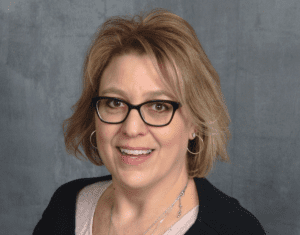 Beth serves as a data abstraction subject matter expert, ensuring data accuracy through quality control oversight, while keeping abreast of industry specific data collection rules and specification changes and providing ongoing education to her assigned data abstraction teams.
Beth serves as a data abstraction subject matter expert, ensuring data accuracy through quality control oversight, while keeping abreast of industry specific data collection rules and specification changes and providing ongoing education to her assigned data abstraction teams.
Prior to joining Registry Partners, Beth served as a Certified Tumor Registrar – Team Leader at St. Peter’s Hospital in Albany, New York where she spent eight years. She spent an additional sixteen years working as a Central Registry Cancer Specialist III for the New York State Central Cancer Registry.
Beth earned her Masters of Science in Education from The College of Saint Rose, her Bachelor of Arts in Psychology/Sociology from the State University of New York and her Associate of Arts in Liberal Arts from Hudson Valley Community College. Additionally Beth earned her national Certified Tumor Registrar (CTR) certification. She is a member of the National Cancer Registrars Association and New York State Cancer Registrars Association, having served as Vice President in the past.
Beth resides in New York and loves traveling, animals and watching Mets baseball.
Q & A with Beth:
Q: You have worked in the hospital and central registry setting. What do you feel are some qualities that are necessary for someone to be a good cancer registrar?
A: In order for someone to be a good Cancer Registrar, they should first have some educational or work history in the medical field to recognize and understand medical terminology. It is also helpful for registrars to have some experience reviewing medical records and or laboratory/pathology reports, so they can identify what information is considered relevant, especially when documenting text. It is important for registrars to stay organized and focused on task for time efficiency and should be very detail oriented so as not to miss any pertinent medical information. In my experience, the best CTR’s are those that truly care about the work they are doing and want to make an important contribution to the statistics and research of cancer.
Q: When training or mentoring someone in the cancer registry profession, what do you find most rewarding about your interaction with the mentee?
A: In my position with the Central Registry, my responsibilities included training new employees/registrars and preparing candidates to sit for the CTR Exam. The most rewarding experience for me is when a registrar successfully passes the CTR exam, knowing I assisted in achieving this goal, is very satisfying. Also, it makes me feel confident in my training abilities and materials; and it provides me with opportunities to learn as well as teach. After a person does become a CTR, I always encourage them to pay it forward to the next candidate, plus this helps them reinforce their own knowledge.
Q: What advice would you give others who are considering a cancer registry career and pursuing their CTR?
A: For those considering the Cancer Registry field as a career, I would advise they do research regarding what types of positions are available for non-CTR’s to work and where they could receive some on the job training. There are not many formal education programs currently geared towards becoming a CTR, so most people learn on the job either at a reporting facility or State Central Registry. Becoming a CTR can be a lengthy process – you need to work in the field for a minimum of one year to be eligible to sit for the CTR exam, and there is so much to learn during that initial year. You really need to know this is what you want to do before committing yourself to the process. Once you are a CTR, you will have many job opportunities and chances for advancement in the registry field.





